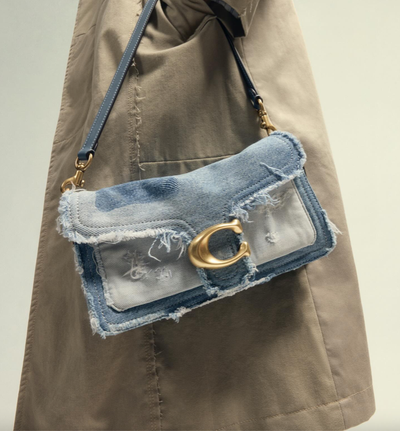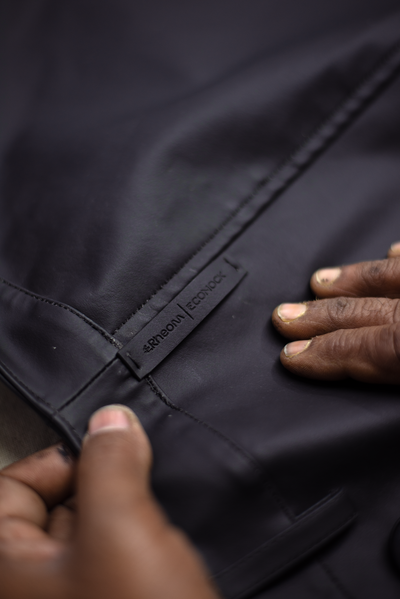Under this collaboration, Fashion Council Germany, as the coordinator of BFW, pledges to make the Minimum Standards outlined in the Sustainability Requirements framework a mandatory criterion for all shows participating in Berlin Fashion Week. With the backing of the Berlin Senate Department for Economic Affairs, Energy, and Public Enterprises, Fashion Council Germany, in conjunction with Studio MM04, is entrusted with executing this visionary initiative, reinforcing BFW's commitment to fostering a responsible fashion platform.
Michael Biel, State Secretary for Economic Affairs, expressed his enthusiasm, stating, "By implementing the Sustainability Requirements, Berlin will emerge as a global leader in fostering a responsible and innovative fashion industry. With substantial financial support until 2025, we are investing in Berlin's future as a trailblazer in sustainability. Through practices like upcycling and the integration of recycled materials, Berlin-made fashion exemplifies both social and ecological responsibility. These standards position Berlin as a beacon among global fashion capitals."
Scott Lipinski, CEO of Fashion Council Germany, echoed this sentiment, emphasising the significance of the partnership with Copenhagen Fashion Week. He stated, "We are proud to join hands with Copenhagen Fashion Week, a pioneer in sustainable fashion. By adopting the Sustainability Requirements, Berlin Fashion Week not only raises the bar for sustainability standards but also sets an example for responsible practices. This collaboration presents a unique opportunity to harness our collective expertise and resources, driving innovation and encouraging brands to meet the evolving demands of both society and the industry."
Cecilie Thorsmark, CEO of Copenhagen Fashion Week, lauded the partnership, stating, "With the Minimum Standards established as mandatory criteria for Copenhagen Fashion Week's participating brands over three seasons, we are delighted to foster greater alignment within the industry through our collaboration with Berlin Fashion Week. This partnership not only promotes alignment but also underscores the pivotal role of fashion weeks and councils in steering the industry towards positive change. It marks a significant milestone in garnering global recognition for the Sustainability Requirements, inspiring further collaborative efforts."
The collaboration entails the phased implementation of the Sustainability Requirements framework across approximately 35 brands featured on the official Berlin Fashion Week show schedule. Through a process of onboarding and piloting, these Minimum Standards will be fully integrated by February 2026, signalling a concerted effort to embed sustainability within the fabric of the fashion industry.
Background
The Sustainability Requirements framework was introduced by Copenhagen Fashion Week in collaboration with Knowledge Partners In Futurum and Dansk Fashion & Textile in January 2020. Updated in March 2024 to reflect industry advancements and changes in EU policy, this framework represents a cornerstone of CPHFW's sustainability strategy, driving comprehensive change within the fashion industry. Endorsed by an Advisory Board and an international panel of experts, the framework has garnered widespread acclaim.
Since its inception, key players such as Copenhagen International Fashion Fair, Norwegian Fashion Hub, and Oslo Runway have embarked on implementing the Sustainability Requirements framework. Moreover, the government-funded programme "Fremtidens Tekstiler" selected the Sustainability Requirements as the framework for conducting gap analyses for 50 SMEs, catalysing further action towards sustainability.
Specific Adaptations for BFW
In addition to adhering to existing guidelines outlined in the Sustainability Requirements, BFW will introduce specific adaptations tailored to its values. Embodying freedom, inclusion, and creativity, BFW prioritises Diversity, Equity, Inclusion, and Belonging (DEIB) as essential components of the fashion industry. Furthermore, the focus will be on enhancing transparency and traceability throughout the value chain, addressing pertinent issues, including Germany's value chain law. Detailed information regarding these adaptations will be available on the BFW website in due course.
The partnership between Berlin Fashion Week and Copenhagen Fashion Week represents a significant stride towards a more sustainable fashion industry. As these two influential platforms converge their efforts, the ripple effects of their collaboration are poised to catalyse transformative change, inspiring stakeholders across the globe to embrace sustainability as a cornerstone of fashion's future.






